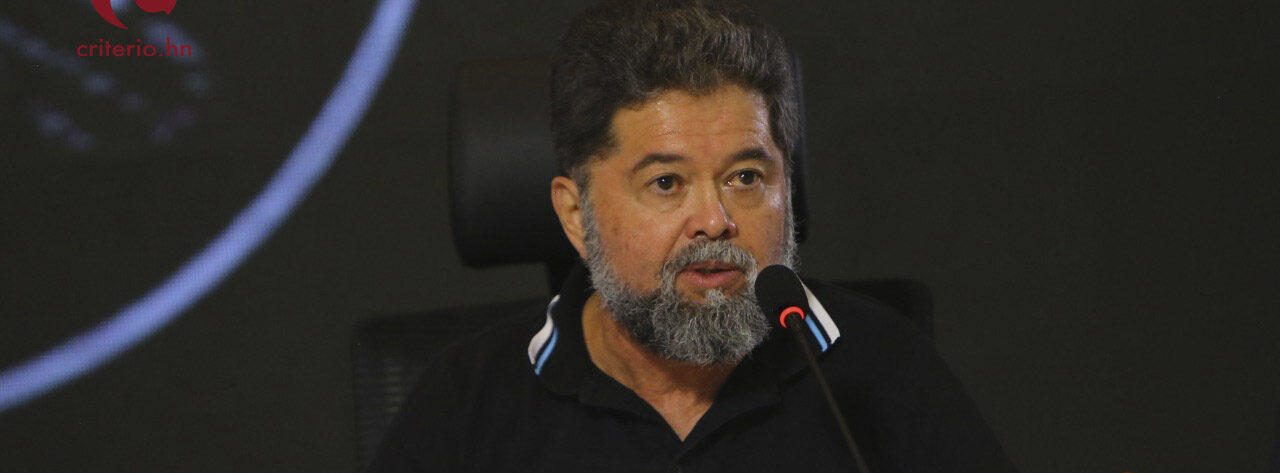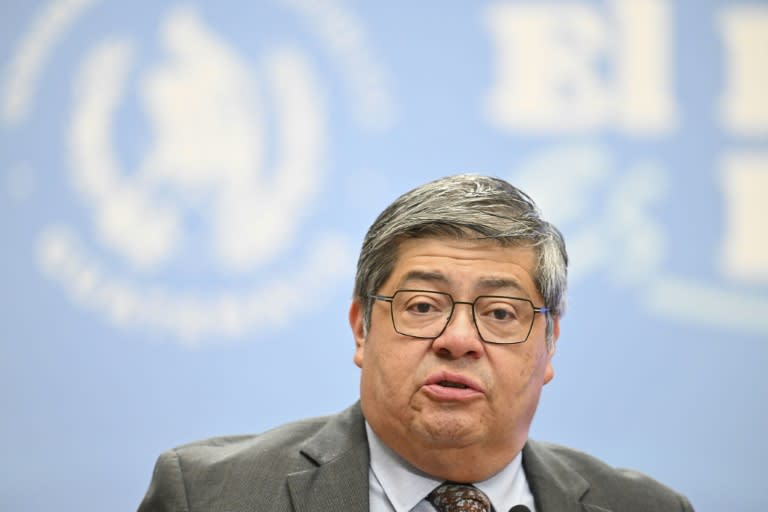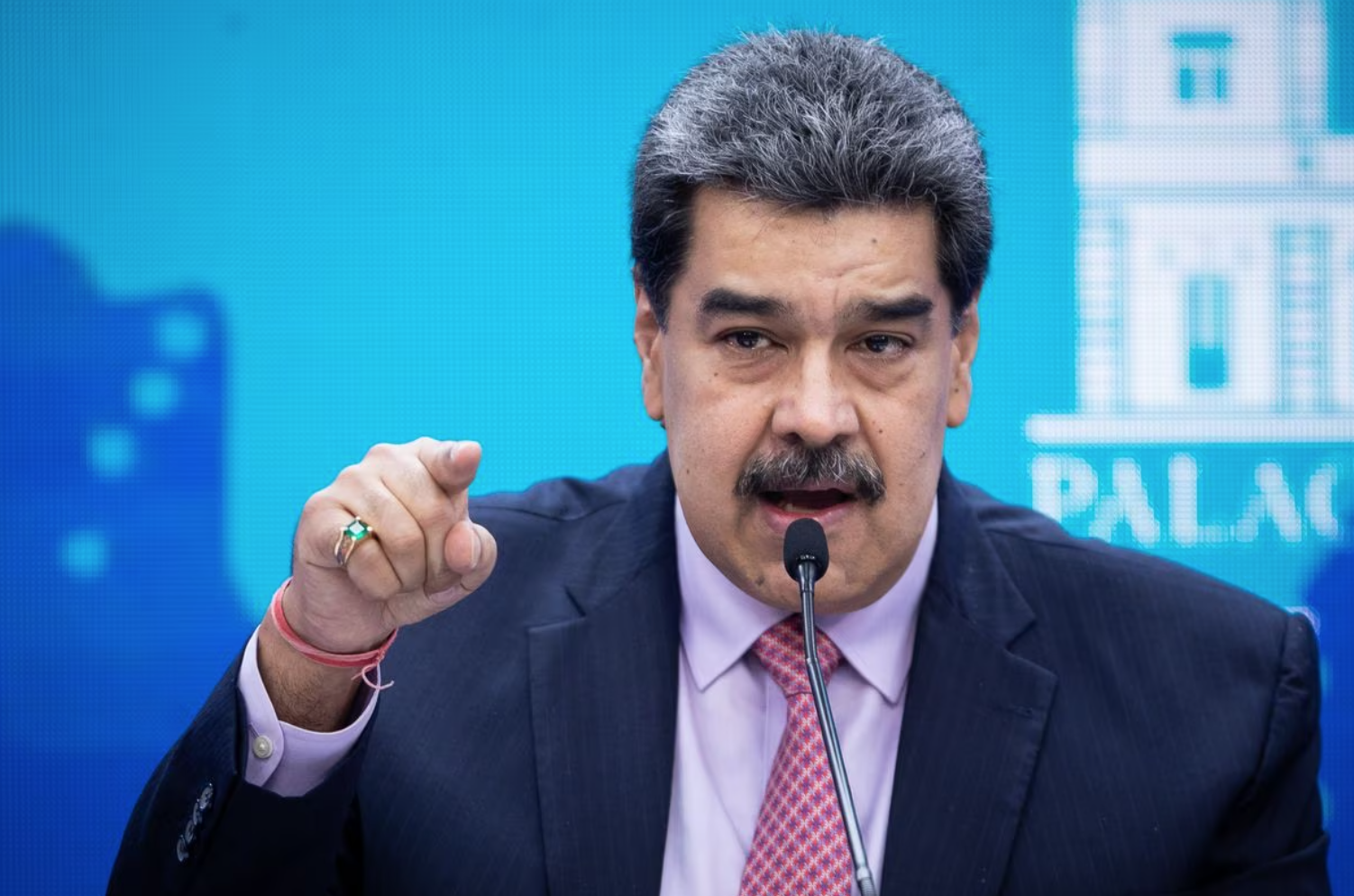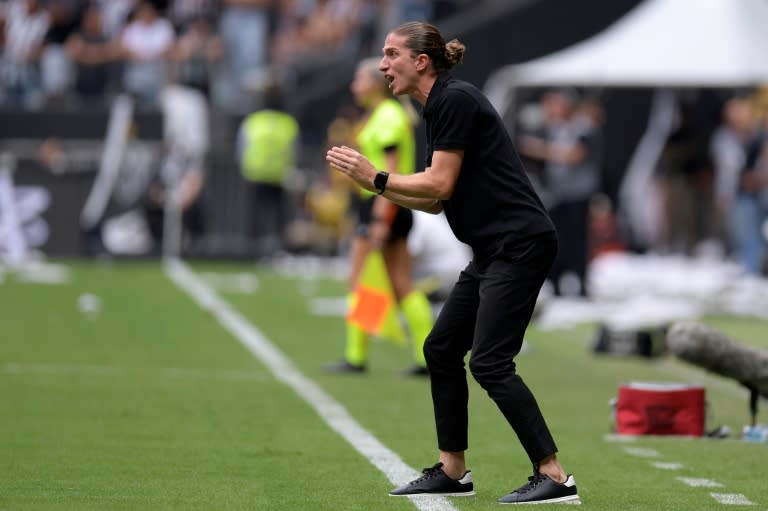Central America
From target to enforcer: Honduras minister vows ‘surgical’ cartel fight

AFP
Forced into hiding after targeting a drug cartel with alleged ties to the then-government, Honduras’s hounded police chief-turned interior minister has vowed to extract criminal tentacles in the State with “surgical” precision.
Ramon Sabillon, minister in the new cabinet of leftist Xiomara Castro, told AFP he was fired from his former job as police chief after dismantling a drug cartel in 2014 without informing then-president Juan Orlando Hernandez.
Hernandez is today awaiting extradition to the United States on drug trafficking charges.
The cartel he had hit, named Valle Valle, “had penetrated the structures of State” under Hernandez, Sabillon told AFP in an interview.
Hernandez had him fired, he said, and “threatened with death, I had to leave the country… I had to either save my life or continue in the police… I preferred life.”
Now Sabillon is back as Castro’s interior minister, and in a twist of irony one of his first tasks was to execute an arrest warrant for Hernandez.
Hernandez, who held office from 2014 to early this year, is accused of having facilitated the smuggling of some 500 tons of drugs — mainly from Colombia and Venezuela — to the United States via Honduras since 2004.
In return, he allegedly received millions of dollars in bribes as well as protection money from drug kingpins such as Mexico’s Joaquin “El Chapo” Guzman.
Hernandez’s brother, former Honduran congressman Tony Hernandez, is serving a life sentence in the United States for drug trafficking.
– ‘A mafia’ –
“When organized crime gets embedded in the State, it becomes a mafia because it holds the power of the State. So it is a surgical job that we have to do, democratically, by enforcing the law,” Sabillon told AFP.
Extraditing a former president, he added, “sends a strong message to the entire population, to those seeking public office, that the State will not tolerate” such actions.
At least 40 Hondurans are sought by the United States on drug allegations.
The minister said a number of coca plantations and laboratories have been dismantled since the beginning of the year.
Cartels are seeking to become more autonomous, he explained, with production in Honduras itself, “so they need not depend on the point of origin” in South American countries such as Colombia and Peru.
Hernandez, a right-wing lawyer, left office on January 27 when leftist Castro became president of the country with a poverty rate of at least 60 percent among its 10 million inhabitants.
The country’s first woman president faces an uphill struggle to reform a country with one of the highest murder rates in the world.
Tens of thousands of its citizens have tried to flee to the United States.
She has vowed to tackle deep-seated government corruption.
Central America
Guatemalan police officer killed in mob riots over baby kidnapping

A police officer was killed during riots provoked by an enraged mob in a Guatemalan town following the kidnapping of a baby, the government reported on Wednesday.
The incidents began on Tuesday night and continued into the early hours of Wednesday in the town of San Vicente Pacaya, about 25 km south of the capital, according to Minister of the Interior Francisco Jiménez.
“There was an incident in San Vicente Pacaya where, unfortunately, a police officer died after being struck in the head with a stone. He passed away this morning,” Jiménez said in a press conference.
He explained that the unrest erupted following the arrest of two suspects in connection with the kidnapping of “a baby just a few months old,” including a woman with a criminal record.
Sports
Venezuela investigates 18 baseball players seeking asylum in Spain

The Venezuelan government announced on Wednesday that it is investigating the case of 18 baseball players who are “under the supervision of Spanish authorities” after seeking protection.
In a statement, Venezuelan authorities said they are working to determine whether this case involves “a possible human trafficking scheme,” though they have not provided any evidence of such a crime.
The Venezuelan government emphasized its commitment to protecting the country’s athletes while also denouncing the use of international legal frameworks by certain governments allegedly seeking to discredit the administration.
CNN reached out to Spain’s National Police for a response to Venezuela’s claims. According to Spanish authorities, the 18 young athletes—including two minors—arrived in Spain to participate in a series of matches but had already planned to apply for asylum. Authorities confirmed on Tuesday that they had begun interviewing the players to process their international protection requests.
The team’s coach addressed the situation in a TikTok video, refuting local media reports that he had abandoned the athletes. He asserted that the players chose to remain in Barcelona to secure the necessary permits to sign with other teams and that their decision was unrelated to any political motivations.
Sports
Filipe Luis debuts as coach in Copa Libertadores with Flamengo

A two-time Copa Libertadores champion with Flamengo during his playing days, Filipe Luis will make his managerial debut in the tournament this Thursday when the popular Rio de Janeiro club faces Venezuela’s Deportivo Táchira.
Placed in Group C alongside Táchira, Liga de Quito, and Argentina’s Central Córdoba, Flamengo starts as one of the favorites—a major challenge for the 39-year-old former player.
His early coaching career has been off to a strong start.
After retiring in 2023, Filipe Luis took over as Flamengo’s head coach on September 30. Just 41 days later, he won his first title, the Copa do Brasil. The year 2025 has already brought two more trophies: the Supercopa do Brasil, where Flamengo defeated Botafogo—current Libertadores and Brasileirão champions—3-1, and the Campeonato Carioca.
At 8:30 PM local time (00:30 GMT Friday), Flamengo under Filipe Luis will make its international debut at Estadio Pueblo Nuevo in San Cristóbal. Although Gerson, Uruguayan Giorgian de Arrascaeta, and Ecuadorian Gonzalo Plata are unavailable, the squad still boasts attacking firepower with Bruno Henrique and Everton.
-

 International5 days ago
International5 days agoSon of journalist José Rubén Zamora condemns father’s return to prison as “illegal”
-

 Central America2 days ago
Central America2 days agoU.S. Homeland Security Secretary urges Mexico to strengthen Guatemala border
-

 International5 days ago
International5 days agoMiyazaki’s style goes viral with AI but at what cost?
-

 Central America4 days ago
Central America4 days agoPanama police clarifies that Interpol alert for Martinelli is still pending
-

 International2 days ago
International2 days agoTrump urges Putin to reach peace deal
-

 Central America2 days ago
Central America2 days agoPanama grants Martinelli 72-hour extension to travel to Nicaragua
-

 International19 hours ago
International19 hours agoParaguay summons Brazilian ambassador over Itaipú espionage scandal
-

 International4 days ago
International4 days agoDeportation flight lands in Venezuela; government denies criminal gang links
-

 Central America17 hours ago
Central America17 hours agoGuatemalan police officer killed in mob riots over baby kidnapping
-

 Sports20 hours ago
Sports20 hours agoFilipe Luis debuts as coach in Copa Libertadores with Flamengo
-

 International20 hours ago
International20 hours agoMilei vows to make Argentina so strong that Falkland Islanders “choose” to join
-

 International20 hours ago
International20 hours agoElon Musk to step down as government advisor, per Trump insiders
-

 Sports19 hours ago
Sports19 hours agoVenezuela investigates 18 baseball players seeking asylum in Spain
-

 International20 hours ago
International20 hours agoICE agent’s arrest of suspect sparks controversy in Boston
-

 International20 hours ago
International20 hours agoÓscar Arias: Trump’s trade policies are a step backward















